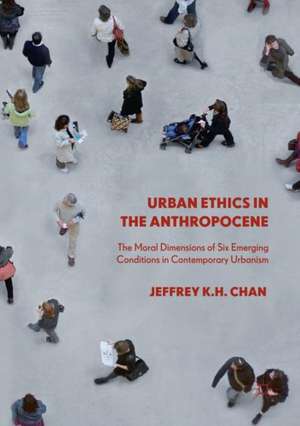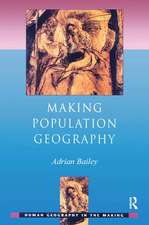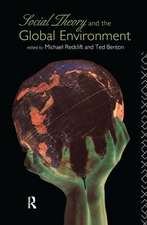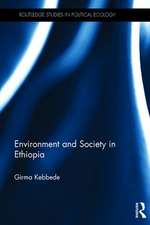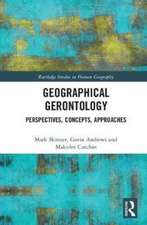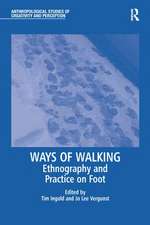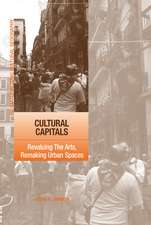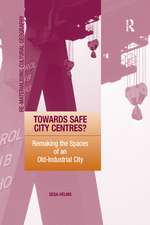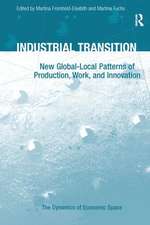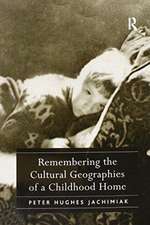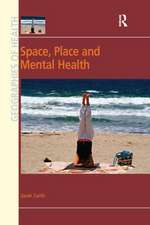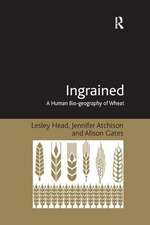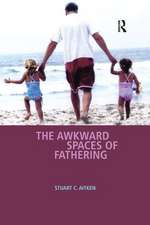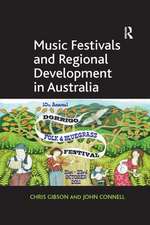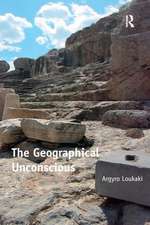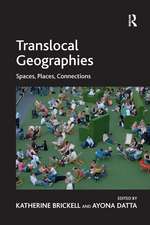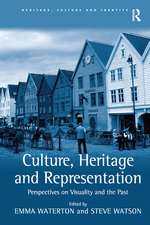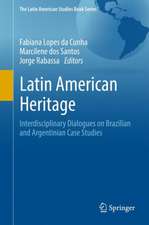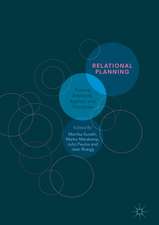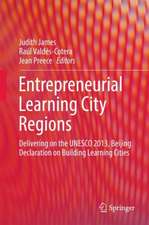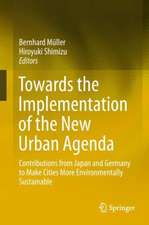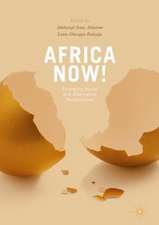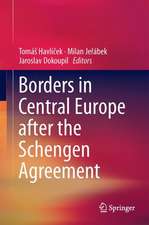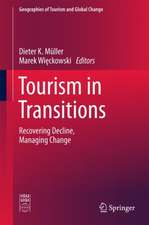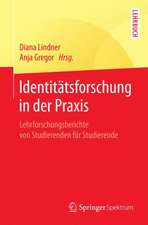Urban Ethics in the Anthropocene: The Moral Dimensions of Six Emerging Conditions in Contemporary Urbanism
Autor Jeffrey K.H. Chanen Limba Engleză Paperback – 9 ian 2019
Increasingly, we live in an environment of our own making: a ‘world as design’ over the natural world. For more than half of the global population, this environment is also thoroughly urban. But what does a global urban condition mean for the human condition? How does the design of the city and the urban process, in response to the issues and challenges of the Anthropocene, produce new ethical categories, shape new moral identities and relations, and bring about consequences that are also morally significant? In other words, how does the urban shape the ethical—and in what ways? Conversely, how can ethics reveal relations and realities of the urban that often go unnoticed? This book marks the first systematic study of the city through the ethical perspective in the context of the Anthropocene. Six emergent urban conditions are examined, namely, precarity, propinquity, conflict, serendipity, fear and the urban commons.
| Toate formatele și edițiile | Preț | Express |
|---|---|---|
| Paperback (1) | 774.35 lei 43-57 zile | |
| Springer Nature Singapore – 9 ian 2019 | 774.35 lei 43-57 zile | |
| Hardback (1) | 779.39 lei 43-57 zile | |
| Springer Nature Singapore – 16 iul 2018 | 779.39 lei 43-57 zile |
Preț: 774.35 lei
Preț vechi: 944.33 lei
-18% Nou
Puncte Express: 1162
Preț estimativ în valută:
148.22€ • 161.05$ • 124.58£
148.22€ • 161.05$ • 124.58£
Carte tipărită la comandă
Livrare economică 21 aprilie-05 mai
Preluare comenzi: 021 569.72.76
Specificații
ISBN-13: 9789811343834
ISBN-10: 9811343837
Pagini: 182
Ilustrații: VII, 172 p.
Dimensiuni: 148 x 210 x 10 mm
Greutate: 0.22 kg
Ediția:Softcover reprint of the original 1st ed. 2019
Editura: Springer Nature Singapore
Colecția Palgrave Macmillan
Locul publicării:Singapore, Singapore
ISBN-10: 9811343837
Pagini: 182
Ilustrații: VII, 172 p.
Dimensiuni: 148 x 210 x 10 mm
Greutate: 0.22 kg
Ediția:Softcover reprint of the original 1st ed. 2019
Editura: Springer Nature Singapore
Colecția Palgrave Macmillan
Locul publicării:Singapore, Singapore
Cuprins
Chapter 1: Introduction.- Chapter 2: Precarity.- Chapter 3: Propinquity.- Chapter 4: Conflict.- Chapter 5: Serendipity.- Chapter 6: Fear.- Chapter 7: The Urban Commons.
Notă biografică
Jeffrey Kok Hui Chan is assistant professor at the Singapore University of Technology and Design. His research focuses on design ethics and his writings have been widely published.
Textul de pe ultima copertă
Increasingly, we live in an environment of our own making: a ‘world as design’ over the natural world. For more than half of the global population, this environment is also thoroughly urban. But what does a global urban condition mean for the human condition? How does the design of the city and the urban process, in response to the issues and challenges of the Anthropocene, produce new ethical categories, shape new moral identities and relations, and bring about consequences that are also morally significant? In other words, how does the urban shape the ethical—and in what ways? Conversely, how can ethics reveal relations and realities of the urban that often go unnoticed? This book marks the first systematic study of the city through the ethical perspective in the context of the Anthropocene. Six emergent urban conditions are examined, namely, precarity, propinquity, conflict, serendipity, fear and the urban commons.
Caracteristici
Breaks new ground by considering ethical issues and moral experience from an architectural and urban planning perspective
Not only fills a gap in the existing literature, but also represents a new category of ideas that will become relevant for a wide range of specialists on the built environment, and also for the informed reader
Departs from an environment-centric analysis by interfacing with traditional texts in ethics that privilege the face-to-face encounters
Critiques the different reformulations of the urban (the Smart City; the Resilient City; the Global City; the Ethical City), where despite this multitude of reformulations, neither their respective normative claims, nor the city itself, has yet to be properly figured, or studied, as an aspect of our moral experience
Not only fills a gap in the existing literature, but also represents a new category of ideas that will become relevant for a wide range of specialists on the built environment, and also for the informed reader
Departs from an environment-centric analysis by interfacing with traditional texts in ethics that privilege the face-to-face encounters
Critiques the different reformulations of the urban (the Smart City; the Resilient City; the Global City; the Ethical City), where despite this multitude of reformulations, neither their respective normative claims, nor the city itself, has yet to be properly figured, or studied, as an aspect of our moral experience
